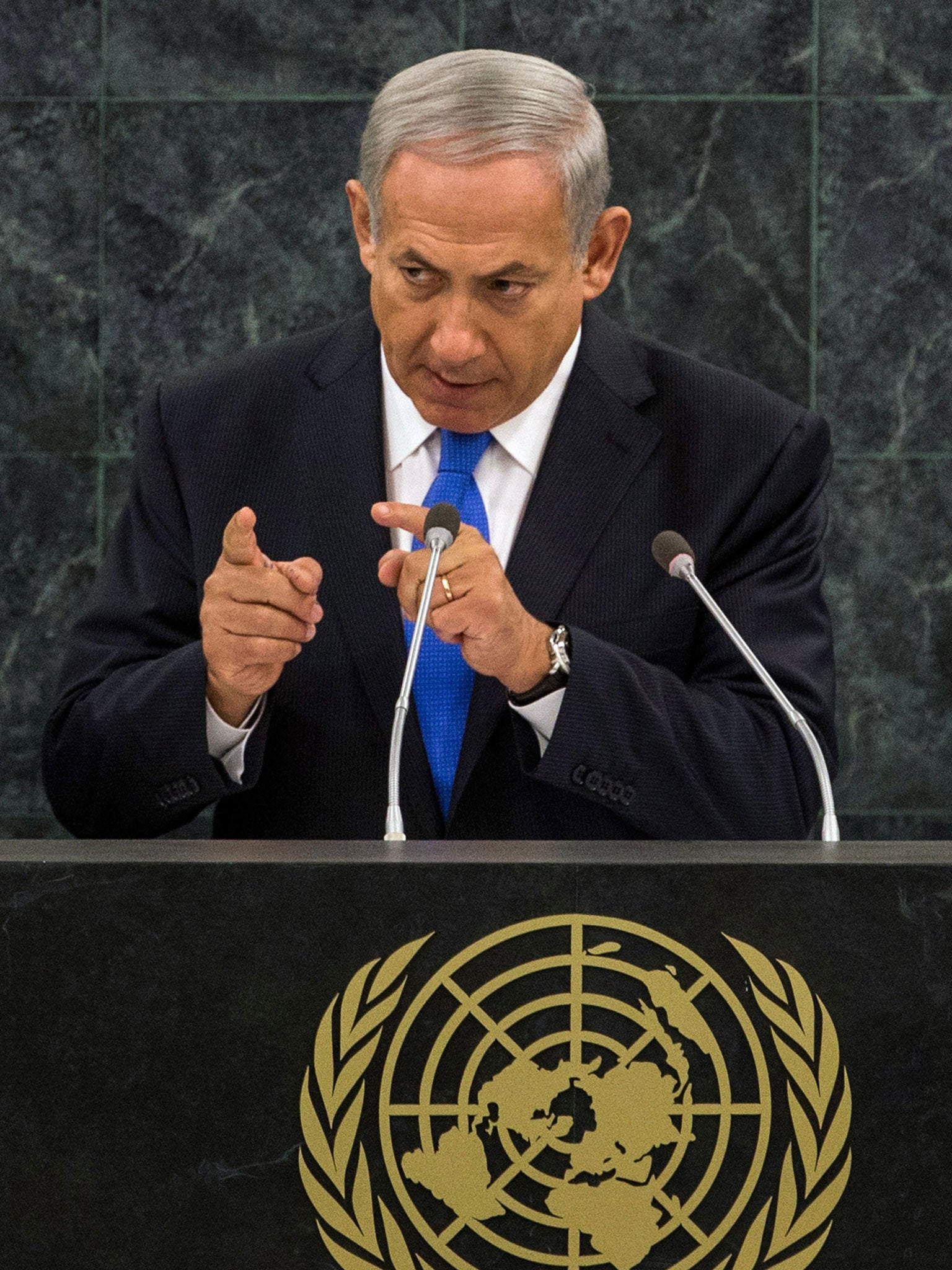Israeli Prime Minister Benjamin would accept Hassan Rouhani phone call about Iran nuclear programme

The Israeli Prime Minister Benjamin Netanyahu said today that he would be willing to speak by phone with the new Iranian President Hassan Rouhani if the latter called him. But he stressed he would only tell the Iranian leader that Tehran should stop its nuclear programme.
‘’We’re not averse to calling,’’ said the Israeli premier, who in a UN General Assembly speech on Tuesday, called the new, more moderate Iranian leader “a wolf in sheep’s clothing’’ intent on duping the international community to relieve sanctions and emerging with a nuclear bomb.
“I’ll tell you what I’ll tell him. You want sanctions lifted? Stop your nuclear programme,” Mr Netanyahu said in an interview with CNN. In separate remarks to National Public Radio, Mr Netanyahu said he would consider a meeting with Mr Rouhani, who raised hopes in the West for a deal on Iran’s nuclear programme with a conciliatory speech to the UN General Assembly. The speech was followed by a phone call to US President Barack Obama, the first contact between leaders of the two countries since 1979.
There has also been no contact between the Israeli and Iranian leaderships since the 1979 revolution in Iran, when Iran turned into a bitter enemy of the Jewish state and a rival for regional primacy. But it seemed unlikely Mr Netanyahu’s offer to speak would change much, especially as he held to his insistence that Iran halt all of its uranium enrichment, something seen in the West as an unrealistic demand. Rather, it seemed Mr Netanyahu’s offer was aimed not at Mr Rouhani but rather to redress the impression that he is being a rejectionist. Mr Netanyahu has been criticised at home for isolating Israel over the Iran issue.
However, in an interview with the BBC’s Persian service, the Israeli leader ruled out changing his tone. “I’m 64 years old this month. I’ve decided to just say it like it is.’’ He called Mr Rouhani’s proposal to scale back uranium enrichment for sanctions relief a “fake deal”. “The reason they insist on enrichment is because they want to maintain the path to a nuclear weapon.”
Mr Netanyahu, who sought to link Mr Rouhani to terrorist attacks during his UN speech, said: “I don’t think he has the mandate to change decisions that are made by [Ayatollah Ali] Khamenei. Khamenei wants a nuclear weapon for Iran.’’
Join our commenting forum
Join thought-provoking conversations, follow other Independent readers and see their replies
Comments
Bookmark popover
Removed from bookmarks